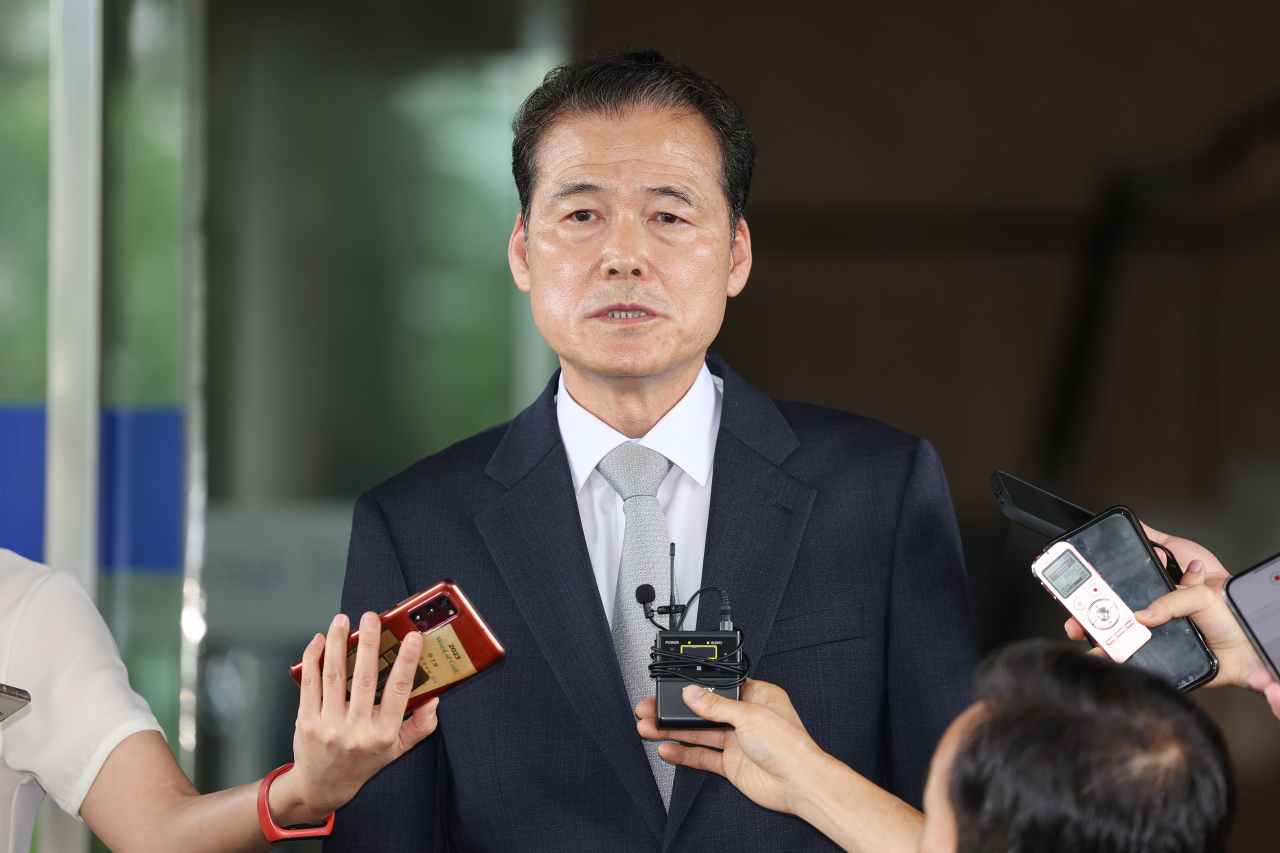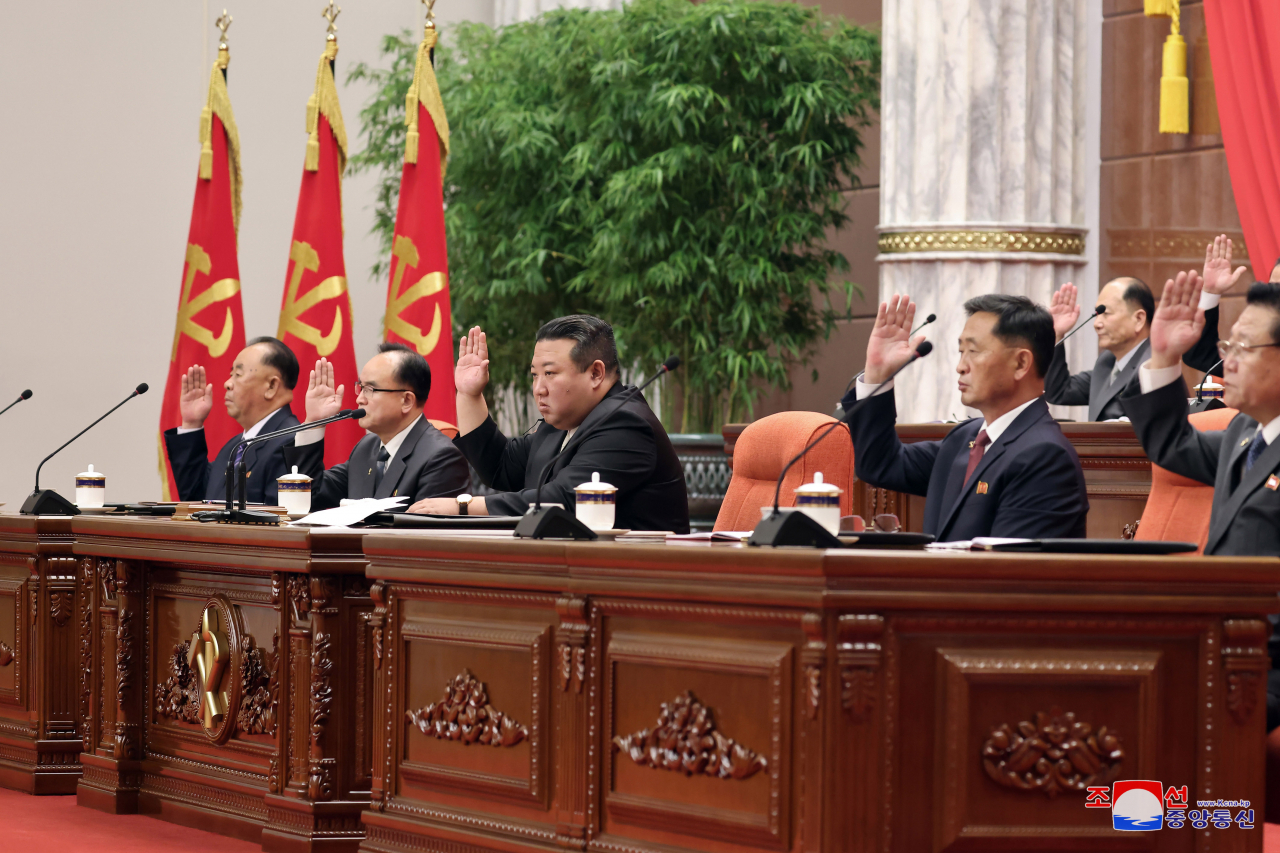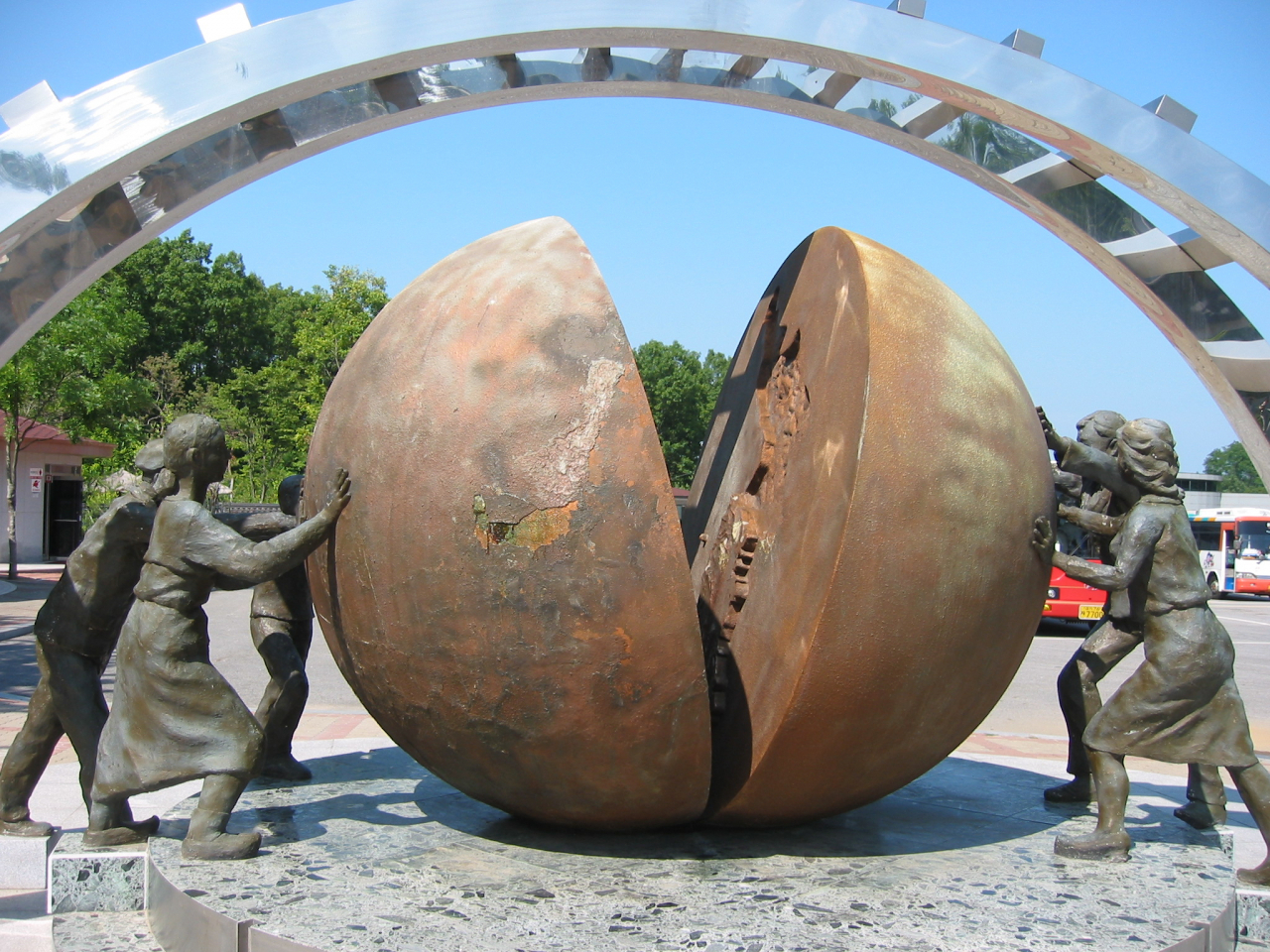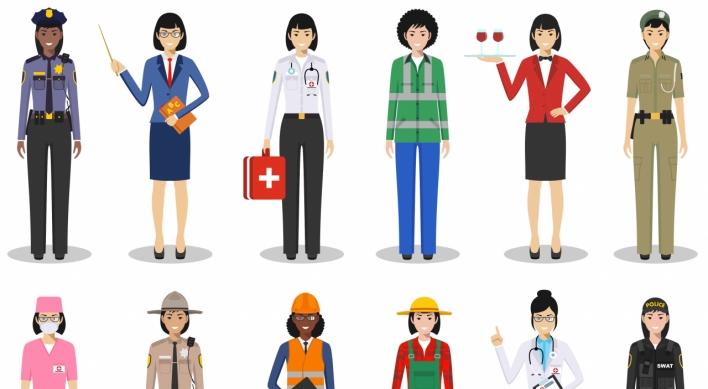Unification Ministry to shift focus to N.Korean human rights
By Ji Da-gyumPublished : July 3, 2023 - 17:57

The Yoon Suk Yeol government is seeking to restructure the Unification Ministry to focus on human rights issues in North Korea and analysis of the Kim Jong-un regime, de-emphasizing its role of facilitating inter-Korean dialogue and other projects aimed at the reconciliation of the two Koreas.
Yoon, following his unconventional, concurrent appointments of a hard-liner on Pyongyang as the minister and a veteran diplomat as the vice minister, reiterated on Sunday that the ministry should not primarily focus on "supporting North Korea."
As part of the restructuring, Yoon nominated Kim Yung-ho, a professor of political science and diplomacy at Sungshin Women's University, to be the new unification minister. Moon Seoung-hyun, who previously served as ambassador to Thailand, assumed the position of vice unification minister on Monday.
In his inaugural speech, Moon pledged that the ministry will promote unification and North Korea policies following Article 4 of South Korea's Constitution, as requested by Yoon. This article stipulates South Korea's objective of pursuing "peaceful unification based on the free democratic basic order."
"By doing so, we can prepare for the process of unification with the right direction and make genuine changes toward unification," Moon said.
"In particular, we will also strive to create conditions for the denuclearization of North Korea and substantially improve the human rights of the North Korean people."
The ministry will "exert more efforts to support the stable settlement of North Korean defectors in our society."
The current presidential decree governing the Unification Ministry stipulates its key responsibilities. Among them, the ministry will also concentrate on addressing other human rights issues including abductions by North Korea as well as collecting and analyzing information on North Korea, South Korean officials confirmed to The Korea Herald.
Amidst the prolonged stalemate between the two Koreas, the ministry has significantly curtailed its legally designated role in "formulating policies related to unification, facilitating inter-Korean dialogue, promoting exchanges, fostering cooperation and providing humanitarian assistance."

But the Yoon government's initiative to redirect the focus of the Unification Ministry has sparked mixed reactions.
Kwak Gil-sup, a professor at Kookmin University, said the Yoon government appears to be taking a balanced approach in shaping the role of the Unification Ministry.
"The Unification Ministry has tilted toward fostering an atmosphere conducive to dialogue between the two Koreas in recent years," Kwak told The Korea Herald.
Kwak pointed out that the ministry has neglected another major role, which is to "promote and advocate for the superiority of South Korea's liberal democracy on the Korean Peninsula, with the aim of ensuring that both the South and North Korean people can enjoy its benefits."
"The ministry has turned a blind eye to the Kim Jong-un regime's anti-humanitarian and repressive tendencies," Kwak said. "Therefore, in my opinion, it is highly timely and appropriate for the Yoon Suk Yeol government to discuss the role of the Unification Ministry while emphasizing constitutional values."
The ruling People Power Party on Monday said the Unification Ministry should "set its policy objective as bringing about meaningful changes in North Korea that align with the constitutional spirit of unification based on liberal democratic order" in a statement issued by spokesperson Kim Ye-ryeong.
But the floor spokesperson of the main opposition Democratic Party of Korea, Kim Han-kyu, criticized Yoon's remarks as a "negation of the previous efforts made by South Korean governments for inter-Korean reconciliation and cooperation."
The party also questioned whether Yoon's intention is to "turn the Unification Ministry into a second National Intelligence Service or an anti-North Korea propaganda department."

The Unification Ministry, initially known as the National Unification Board, was established on March 1, 1969. Its primary purpose was to centralize discussions on unification that were happening in different sectors of society following the April 19 Revolution in 1960. The establishment of the ministry aimed to address unification issues in a systematic and institutionalized manner at the government level.
Irrespective of the ideological orientation of the governments in power, the Unification Ministry has traditionally prioritized inter-Korean dialogue and exchanges as its primary focus, although there have been occasional deviations from this approach.
The history of inter-Korean exchanges and cooperation that spans several administrations. It began with the July 4 South-North Joint Communique in 1972 during the Park Chung-hee government, followed by the 1991 Inter-Korean Basic Agreement during the Roh Tae-woo government. The trend continued under the liberal governments of Kim Dae-jung, Roh Moo-hyun and Moon Jae-in.
The 1991 Basic Agreement defined inter-Korean relations as a "special interim relationship stemming from the process toward unification," rather than a traditional relationship between separate states. This perception has formed the basis of South Korea's policy toward North Korea.
But for the Yoon government, establishing an inter-Korean relationship should be based on universal principles advocated by the international community, rather than maintaining the "special interim relationship."
Lim Eul-chul, a professor of North Korean studies at Kyungnam University in Seoul, however, warned that the Yoon government is failing to grasp the unique nature of the inter-Korean relationship.
Lim assessed that the Yoon government's approach to North Korean issues is "fragmented and shortsighted," lacking the necessary understanding to effectively address complex challenges posed by North Korea. South Korea's limited access to North Korea will thereby eventually hinder the country's ability to make well-informed policy decisions.
Lim also pointed out that the key role of the ministry is to devise strategies and create conditions that facilitate inter-Korean dialogue and negotiations, with the ultimate goal of pursuing South Korea-led unification, despite North Korea's disinterest in inter-Korean dialogue.
"We should keep in mind the crucial role of the Unification Ministry is to prepare South Korea to take the lead in the medium- to long-term plans for unification," Lim told The Korea Herald. "The current approach disregards the broader significance and strategic implications associated with the role of the Unification Ministry."






![[AtoZ Korean Mind] Does your job define who you are? Should it?](http://res.heraldm.com/phpwas/restmb_idxmake.php?idx=644&simg=/content/image/2024/05/06/20240506050099_0.jpg&u=)












